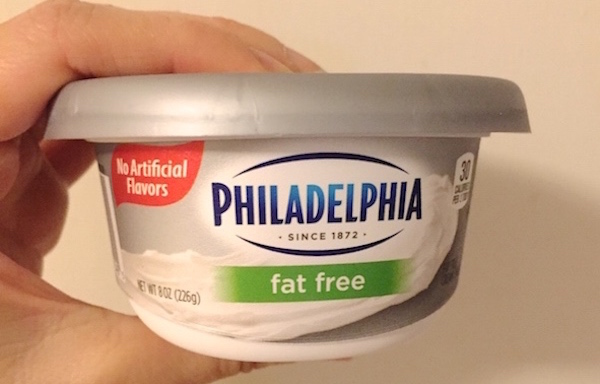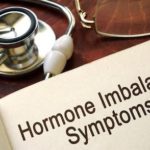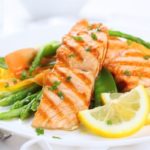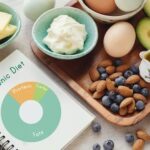
If anyone has not succumb to trying even one of the many fad diets out there, I’d be amazed. At some point or another, we’ve all tried this or that diet that we’ve heard works the best. I decided to write this article, because I’ve seen people not only struggle with weight loss, but I’ve seen many people who have started over-indulging in products, not giving a damn about the amount of calories that they’re consuming. Many people are being misled, and not fully comprehending what fat free really means when they see it written on products. Therefore, they tend to eat these products as much as they want, and without holding back.
Fat Free Diets Don’t Work
I’m here to tell you that fat free diets don’t work. The key to living a predominantly healthy lifestyle is always moderation. I don’t necessarily think that all fat free products are bad for you, and I even think that some are better to add into your diet. However, taking anything to the extreme is wrong. For many people, exploring the fat free diet not only won’t help to lose weight, but people might even end up gaining more weight.
It’s always essential that people learn how to read nutrition facts. Once they’ve learned how, they need to make sure to read them every time they’re considering consuming a product. Whether you’re going to buy food that you cook for yourself, your family, your kids, or anyone else, it’s important to care what you buy, and what’s inside of products.
There are many people who won’t bother reading directions when they buy a new item, despite what the item is. Many people simply like to do things themselves, not read directions, and when driving, many people won’t even ask for directions when they’re lost. For people who are more of the do it their self types, where they prefer to explore the trial and error system, the more power to them. For all others, I’m here to tell you that when it comes to food, and when you have the option of reading and learning what’s inside of the food you eat, do so. You are what you eat. Good ingredients makes good food, and the healthier that you eat, the healthier that you’ll feel, look, and become.
I personally don’t feel that all diets are bad. However, I do believe in moderation, and in living a predominantly healthy lifestyle. A healthy lifestyle consists of many things. When it comes to your diet and what you eat, I highly recommend taking the good parts from many different diets that you might’ve tried.
Fat Free Diets Are Better for Those Who Are Obese
There are many reasons that the fat free diet doesn’t work. But, let me go ahead and use an example of someone who’s quite obese. For someone who’s obese, you should start out with the fat free diet. This means that you should try to buy the same items that you’d normally buy (even if I wouldn’t necessarily recommend them). However, you should buy those same products, but purchase the ones that have fat free written on the label.
You can do this even if you’re not obese, and if you simply prefer to consume less calories. For example, if you buy milk, buy fat free milk. If you usually buy cottage cheese or sour cream, by the fat free version. Obviously, I have mixed feelings about those types of products in general, but if you know yourself, and you already know that you’re going to eat those products anyway, the obese person can still eat them if they’re fat free.
Now, obviously I’m not a big fan of the fat free diet, but in a scenario like the one above, it’s important that someone who’s obese starts out on a fat free diet until they lose a certain amount of weight. I definitely understand that it depends on the person, and again, keep in mind, we’re talking about someone who’s obese here. Someone who’s obese generally has a problem with self-control, so they’ll likely still buy the products, and consume them anyway. So when someone is obese, they need to start out for at least the first two or three weeks on a strict fat free diet.
For someone who’s obese, and starting out the first few weeks on a strictly fat free diet, I still believe that they should consume all of the fruits and vegetables that they desire if possible, but raw, steamed dry, or lightly sauteed preferably with cold pressed olive oil. As well, if anything has less than a few grams of fat in it, they should still eat it if they’re craving it. I know, I know, eating whatever someone wants, without regard to how many calories they’re consuming, or how much of it they’re consuming is against what I personally live by. However, I’m not obese, and this is merely to help people to start losing weight when you’re typically considered obese.
After a few weeks of the obese person trying the fat free diet, they’ll likely lose a tremendous amount of weight. However, depending on how obese a person is, they might have to extend the fat free diet for even up to a few months if needed. When they’re stably losing weight from it, they should stick to it until the point that their weight loss comes to a halt. Once the obese person’s weight loss comes to a halt, and it seems that they’re not losing anymore weight, it’s important to change up their diet. They need to move into the next category which would be moderation, smaller portions, and adding small amounts of fat into their diet (but nothing fried, definitely no fast food or high calorie foods/drinks!).
When someone is overweight, chubby, or anything other than seriously obese, it’s important to never try fad diets for many reasons. Fad diets are fad diets for that reason. Fad diets get popular and unpopular, just as fast as the weight that you might lose comes back again, and many times, even more. It’s important that everyone stays away from fad diets, and that includes the fat free diet. Generally speaking, when trying any fad diets or even dieting in extreme, the second that you give into temptation or decide to quit that particular diet, some of the weight will come back, and many times, a lot more, and a lot quicker.
Fat free diets don’t work. They don’t work, because they make people over-consume, and over-indulge. I believe that we should all eat what we want in moderation, as well as indulge in moderation. We shouldn’t deprive ourselves of things that we crave. We should eat smaller portions, and more frequent meals. Those meals should predominantly be healthy, without eliminating the foods that you love. If you don’t want to gain weight, don’t over-eat. It’s that simple! Ask yourself, would you rather look how you want to look and have a great body or eat that pastry!
Calories Matter!
You need to burn more calories than you consume. Fat free products will usually have less calories, but those calories still add up. You should read the nutrition facts on products and check to see how many calories there are per serving. After you see how big that serving size is, compare that with with you’re used to consuming. It’s wise to cut calories when you can. In other words, when you’re trying live a healthier lifestyle, trying to lose a few pounds, or even trying to lose a certain amount of weight that you might’ve gained, it’s important to have self control, read labels when you can, and cut calories whenever it’s an option.
Here’s a little secret—You can always cut calories, so there’s no need to make an excuse. You can eat less, and that will cut calories right there. You can eat smaller portions, and that will cut calories too. You can even trim the fat, eat leaner meats, or get your burger wrapped in lettuce instead of bread. You can tell restaurants to hold the cheese, the dressing, or the sauce. You can stop eating out at fast food places or at restaurants all together. As well, you should pay attention to your satiety level (which takes 15 minutes to kick in, and you’ll know that you’re full), eat slower, and stop eating when you start to feel full.
Whatever you do, don’t give up, and don’t give in to the short term light, long term darkness fat free diet. If you do, you may lose a few or even many pounds at first. But, as soon as that weight loss comes to a halt, the consequences of the fat free diet are all down hill. Suddenly, that weight loss will turn into weight gain. The second that your body gets used to the changes that you’ve made by eliminating most of the fat in your diet, you won’t lose weight, you won’t feel full, and you’ll likely overconsume, and over-indulge.
- Falafel on Wheels – Fresh and Delicious Food Truck in Encino, Los Angeles, California - June 22, 2022
- 18 Ways To Know You’re Not Being Appreciated - April 11, 2022
- Finally Okay, Without You - December 2, 2021







One thought on “Weight Loss: The Truth About the Fat Free Diet”